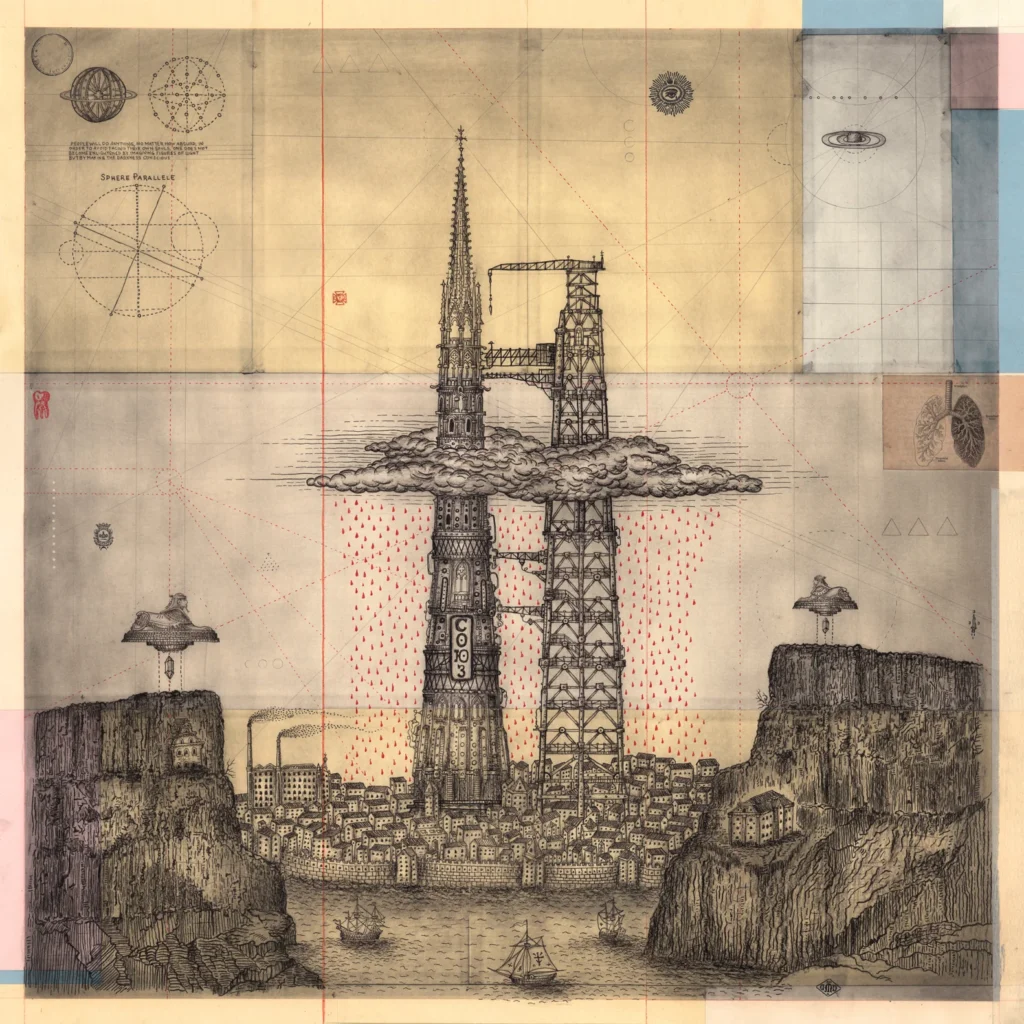
Diaz attempts to capture the complexity and beauty of the underlying mechanisms that he thinks binds people in emotion, and at the same time, he aims to explore the mysteries around us, things that we don’t know.
Key Ideas
- The purpose and point of games in human motivation and well-being
- Transactional analysis and the psychology of human relationships
- Unconscious games and their role in shaping behavior and emotions
- Gamification and its impact on intrinsic motivation and engagement
- The role of games in personal growth and self-discovery
- The use of games in psychotherapy and mental health treatment
- The dangers of destructive societal games and hyper-competitive systems
- The gamification of social and economic systems and its existential implications
- The rise of digital technologies and the gamification of human behavior
- Cultivating a holistic understanding of the good life and human flourishing
- Creating economic and social systems that prioritize well-being over wealth and power
- Developing technologies that empower and enrich human experience
- The interdependence and inherent worth of all living beings
- Shifting consciousness towards cooperative endeavors and shared humanity
- Re-imagining current systems and structures for a future worthy of the human spirit
The Purpose vs. The Point of Life
C. Thi Nguyen, a philosopher who has written extensively about games and agency, provides a framework for understanding the essential elements of games and how they relate to human agency and motivation. Nguyen defines games as a type of “agency system” that is designed to be intrinsically motivating and enjoyable. Games are characterized by their rules, obstacles, and goals, which create a structured environment in which players can exercise their agency and make meaningful choices. Nguyen argues that games are valuable because they provide a context in which we can experience a sense of autonomy, competence, and relatedness, which are key factors in promoting intrinsic motivation and well-being.
In the context of games, agency refers to the player’s ability to make meaningful choices that affect the outcome of the game. Nguyen emphasizes that games are designed to create a sense of “active agency,” where the player feels like they are the primary cause of the game’s events and outcomes. This sense of agency is crucial to the enjoyment and engagement that players experience when playing games.
Nguyen draws a distinction between the “purpose” and “point” of a game, which is central to his understanding of how games create meaning and value for players. The purpose of a game refers to the specific goals, objectives, or win conditions that are built into the structure of the game itself. These are the explicit aims that players are meant to pursue within the context of the game, and they are often defined by the game’s rules and mechanics. For example, in a game of chess, the purpose is to checkmate the opponent’s king. In a racing game, the purpose might be to finish the race in the shortest time possible. These purposes are inherent to the design of the game and provide players with a clear sense of direction and motivation.
The point of a game, on the other hand, refers to the deeper reasons why players find the game meaningful, valuable, or worthwhile. This is a more subjective and personal concept, as different players may find different kinds of meaning or value in the same game. For some players, the point of a game might be the sense of mastery or competence they experience as they improve their skills and overcome challenges. For others, the point might be the social connections and shared experiences they have with other players. Some players might find meaning in the narrative or artistic elements of a game, while others might value the opportunity for creative expression or self-discovery.
Nguyen argues that the most successful and enduring games are those that allow players to find their own sense of point, even as they pursue the specific purposes built into the game’s structure. He suggests that designers should create games that are open-ended enough to accommodate a range of playstyles and interpretations, while still providing clear goals and feedback to guide players’ actions. We could look at the way that languages, religions and empirical methodologies like science function in the same way. We can also reflect on the purpose vs the point of how we apply these concepts in our society at large.
Is Therapy a Game?
The concept of a reparative experience in individual therapy as a kind of healthy game is a powerful one. In this therapeutic game, the win condition is learning a new, more adaptive way of being and relating, rather than staying stuck in the old, traumatic patterns.
Traumatized individuals often find themselves unconsciously drawn to experiences that recreate the dynamics of their original trauma. This could manifest as defending an abusive partner, engaging in hypersexuality after sexual trauma, or repeatedly getting into conflicts at work that mirror early experiences of powerlessness or humiliation. On an unconscious level, the individual is trying to return to the familiar “game” of their trauma, where they know the rules and the possible outcomes.
In this traumatic game, the win condition is a paradoxical one – it’s about maintaining the status quo, rather than achieving change or growth. By playing out the same patterns over and over, the individual is attempting to master or control their traumatic experience. They may have an unconscious belief that if they can just play the game “right” this time, they can finally resolve the unresolved pain of the past.
However, this traumatic game is rigged – there’s no way to truly win. No matter how many times the individual replays the traumatic scenario, the underlying wound remains unhealed. In fact, each repetition of the trauma game may only serve to reinforce the original wound, deepening the grooves of the maladaptive patterns.
This is where therapy comes in as a different kind of game – a reparative one. In the therapy game, the objective is not to repeat the old patterns, but to create new ones. The therapy room becomes a safe arena where the individual can explore, express, and experiment with different ways of being.
A skilled therapist acts as a kind of game master, guiding the individual through this process of self-discovery and change. The therapist helps the individual to identify the unconscious rules and beliefs that have been driving their traumatic game, and to question and challenge these rules.
Eric Berne and the Games of the Unconscious:
In the 1950s and 1960s, game theory and psychoanalysis emerged as two of the most influential theories in understanding human behavior and social interaction. It was in this context that psychiatrist Eric Berne developed his groundbreaking approach to understanding human psychology and relationships: transactional analysis.
Berne, trained in psychoanalysis, was particularly interested in the way people interact with each other and how these interactions shape their psychological and emotional lives. Berne became drawn to the ideas of game theory as a counter explanation for undercurrents in human behavior. Berne used mathematical models combined with psychoanalytic ego/id dichotomies to analyze strategic decision-making in competitive situations.
In his seminal book “Games People Play,” published in 1964, Berne brought together these two intellectual strands to create a powerful new framework for understanding human behavior. He proposed that much of our social interaction consists of “games” – recurring patterns of behavior with hidden motives and predictable outcomes. These games, he argued, are driven by deep-seated psychological needs and are often played out unconsciously.
Berne’s theory of transactional analysis was groundbreaking in its integration of psychoanalytic concepts with the strategic insights of game theory. He argued that every individual has three “ego states” – the Parent, the Adult, and the Child – which represent different aspects of their personality. Interactions between people, which Berne called “transactions,” involve the interplay of these ego states.
Berne identifies dozens of these games, from the power struggles of “If It Weren’t For You” to the self-sabotage of “Yes, But.” He argues that while these games are often dysfunctional, they serve deep-seated psychological needs. By analyzing the games people play, Berne believes we can gain insight into the unconscious scripts that govern much of human behavior.
The Games Society Plays
Building on Berne’s ideas, we can distinguish between conscious and unconscious games. Conscious games are those that we actively choose to engage in, with a clear understanding of the rules, roles, and objectives. These games can be playful, creative, and energizing, as we voluntarily take on challenges and experiment with different strategies and identities.
In contrast, unconscious games are those that we play without awareness or intention. These games are often rooted in childhood experiences, traumas, or unmet needs, and they can manifest as dysfunctional patterns of behavior that we repeat compulsively. Unconscious games are particularly dangerous because they operate below the level of conscious awareness, shaping our perceptions, emotions, and actions in ways that we may not understand or control.
The Pitfalls of Avoidance: Breaking the Rules of the Game
Philosopher C. Thi Nguyen draws an important distinction between games and gamification. While games are designed to be intrinsically enjoyable and rewarding, gamification involves the application of game-like elements to non-game contexts, often in an attempt to motivate or manipulate behavior. Nguyen argues that gamification can be problematic, as it can undermine intrinsic motivation and lead to a focus on external rewards rather than the inherent value of the activity itself.
This distinction is relevant when considering the different aspects of our psyche that relate to games. It has long been theorized that our religious capacity, which often involves the creation of meaningful narratives and the pursuit of transcendent goals, is more closely aligned with the healthy functions that we use to heal ourselves. In contrast, our ability to quantify and empiricize reality, which can lead to a more competitive and potentially destructive mindset, may be more associated with the negative aspects of gamification.
As we delve deeper into the role of the three primary games in shaping our consciousness, it becomes evident that one of the ways we engage in avoidance or deflection is by breaking the rules of the game we are playing. This can manifest as using logic where emotion is the appropriate game (intellectualization) or using emotion where our objective function is needed (the stages of grief, magical thinking). When we fail to engage with the appropriate game for a given situation, we create internal conflict and hinder our ability to process and adapt to reality effectively.
The Role of Good and Bad Games in Personal and Civilizational Development
Games play a crucial role in human development, both on an individual and civilizational level. They provide a safe space for experimentation, learning, and growth, allowing us to test out different strategies, identities, and ways of being in the world. However, not all games are created equal, and it is important to distinguish between good games and bad games.
Good games are those that allow us to expand the scope of our context and to effectively trust others to handle complexity that we may not be able to fully understand. These games are characterized by clear rules, meaningful choices, and feedback mechanisms that allow players to learn from their actions and adapt their strategies over time. Good games also foster collaboration, creativity, and a sense of shared purpose, as players work together to achieve common goals and overcome challenges.
On the other hand, bad games are those that inflate the ego and create a false sense of control or mastery, without providing any real agency or growth. These games often rely on manipulation, deception, or exploitation, preying on people’s fears, desires, or prejudices to achieve a predetermined outcome. Bad games can be addictive and self-reinforcing, as they provide a temporary sense of power or validation, but ultimately leave players feeling empty or disconnected from reality.
Combining Nguyen’s Theories with Berne’s in Psychotherapy:
Nguyen’s theories about the purpose and point of games can be combined with Berne’s transactional analysis to provide a powerful framework for psychotherapy. By understanding the unconscious games that patients are playing in their lives, therapists can help them to shift the focus from the purpose of these games to their deeper point or meaning.
In many cases, patients may be playing games that are driven by unconscious scripts or ego states, such as the “Victim” or the “Rescuer.” These games often have a clear purpose, such as avoiding responsibility or gaining validation from others, but they may not align with the patient’s deeper values or goals.
By helping patients to identify and question the rules and assumptions underlying these games, therapists can guide them towards a more conscious and intentional way of living. This may involve exploring the patient’s early experiences and relationships, and how these have shaped their current patterns of behavior.
Ultimately, the goal of psychotherapy from this perspective is not just to alleviate symptoms or achieve specific behavioral changes, but to help patients to engage in games that are truly meaningful and fulfilling. This may involve shifting the focus from external rewards or validation to internal sources of motivation and satisfaction, such as personal growth, creativity, and connection with others.
By combining Nguyen’s insights about the purpose and point of games with Berne’s framework of transactional analysis, therapists can help patients to develop a more nuanced understanding of their own psychology, and to make more conscious choices about the games they play in life. This approach can be particularly effective for patients who are stuck in repetitive patterns of behavior or who struggle to find meaning and purpose in their lives.
The Dangers of Society Playing Destructive Games:
On a larger scale, societies can also fall into the trap of playing unconscious and destructive games. When we become overly focused on expanding the ego and creating objective, measurable hierarchies, such as wealth, power, or status, we risk losing touch with the more subjective and vulnerable parts of ourselves.
Throughout history, we have seen examples of societies that have prioritized the accumulation of wealth, the expansion of empire, or the display of military might over the wellbeing of their citizens. In the ancient world, this often manifested as the exploitation of slave labor or the glorification of conquest and domination. In more recent times, we have seen the rise of hyper-competitive capitalism, where the pursuit of profit is often prioritized over social and environmental concerns.
When societies become overly gamified in this way, they can create systems that are fundamentally opposed to human flourishing. For example, when healthcare or education are treated as commodities to be bought and sold, rather than as basic human rights, they can become inaccessible to those who need them most. Similarly, when corporations are incentivized to maximize shareholder value at any cost, they may engage in practices that are harmful to workers, communities, and the environment.
The gamification of social and economic systems can also lead to a kind of existential emptiness, where individuals become disconnected from their own sense of meaning and purpose. In a world where success is defined solely in terms of external metrics, such as wealth or status, people may feel pressure to constantly compete and compare themselves to others, rather than focusing on their own personal growth and fulfillment.
Furthermore, the rise of digital technologies has created new opportunities for the gamification of human behavior on a massive scale. Social media platforms, for example, are designed to keep users engaged and coming back for more, often by exploiting psychological vulnerabilities such as the need for social validation or the fear of missing out. Similarly, the use of big data and machine learning algorithms can enable corporations and governments to manipulate individuals’ choices and behaviors in ways that are not always transparent or consensual.
Ultimately, the dangers of societal gamification stem from a fundamental misalignment between the narrow, ego-driven goals of the game and the deeper needs and values of human beings. When we lose sight of the inherent worth and dignity of each individual, and instead see people as mere pawns in a larger game of competition and domination, we risk creating a world that is fundamentally hostile to human flourishing.
To address these dangers, we need to cultivate a more holistic and nuanced understanding of what it means to live a good life, one that balances the pursuit of external goals with the cultivation of internal values such as compassion, creativity, and wisdom. We need to create economic and social systems that prioritize the wellbeing of people and the planet over the accumulation of wealth and power. And we need to develop technologies that are designed to empower and enrich human experience, rather than to exploit and manipulate it.
Ultimately, the key to avoiding the dangers of destructive societal games may lie in a fundamental shift in consciousness, one that recognizes the interdependence and inherent worth of all living beings. By cultivating a sense of shared humanity and common purpose, we can create a world in which the games we play are not zero-sum competitions for dominance and control, but cooperative endeavors that bring out the best in ourselves and each other. This may require a radical re-imagining of our current systems and structures, but it is a challenge that we must undertake if we hope to create a future that is truly worthy of the human spirit.
Breaking the Rules of the Game
Philosopher C. Thi Nguyen draws an important distinction between games and gamification. While games are designed to be intrinsically enjoyable and rewarding, gamification involves the application of game-like elements to non-game contexts, often in an attempt to motivate or manipulate behavior. Nguyen argues that gamification can be problematic, as it can undermine intrinsic motivation and lead to a focus on external rewards rather than the inherent value of the activity itself.
This distinction is relevant when considering the different aspects of our psyche that relate to games. It has long been theorized that our religious capacity, which often involves the creation of meaningful narratives and the pursuit of transcendent goals, is more closely aligned with the healthy functions that we use to heal ourselves. In contrast, our ability to quantify and empiricize reality, which can lead to a more competitive and potentially destructive mindset, may be more associated with the negative aspects of gamification.
As we delve deeper into the role of the three primary games in shaping our consciousness, it becomes evident that one of the ways we engage in avoidance or deflection is by breaking the rules of the game we are playing. This can manifest as using logic where emotion is the appropriate game (intellectualization) or using emotion where our objective function is needed (the stages of grief, magical thinking). When we fail to engage with the appropriate game for a given situation, we create internal conflict and hinder our ability to process and adapt to reality effectively.
The Role of Good and Bad Games in Personal and Civilizational Development
Games play a crucial role in human development, both on an individual and civilizational level. They provide a safe space for experimentation, learning, and growth, allowing us to test out different strategies, identities, and ways of being in the world. However, not all games are created equal, and it is important to distinguish between good games and bad games.
Good games are those that allow us to expand the scope of our context and to effectively trust others to handle complexity that we may not be able to fully understand. These games are characterized by clear rules, meaningful choices, and feedback mechanisms that allow players to learn from their actions and adapt their strategies over time. Good games also foster collaboration, creativity, and a sense of shared purpose, as players work together to achieve common goals and overcome challenges.
On the other hand, bad games are those that inflate the ego and create a false sense of control or mastery, without providing any real agency or growth. These games often rely on manipulation, deception, or exploitation, preying on people’s fears, desires, or prejudices to achieve a predetermined outcome. Bad games can be addictive and self-reinforcing, as they provide a temporary sense of power or validation, but ultimately leave players feeling empty or disconnected from reality.
Egoism as a Viral Gamification:
The concept of the ego extending itself through neural networks and becoming a sort of virus in society is a powerful metaphor for understanding the dangers of unchecked ego-driven behavior on a collective scale.
In this context, the ego can be understood as the individual’s sense of self-importance, self-esteem, and self-identity. While a healthy ego is necessary for personal growth and self-actualization, an unchecked ego can lead to narcissistic and selfish behavior that prioritizes one’s own interests over the well-being of others.
When individuals engage with external neural networks, such as social media platforms, they have the opportunity to project their ego onto a vast and interconnected system. By posting content, seeking likes and followers, and engaging in self-promotion, individuals can create a digital representation of their ego that is visible to a wide audience.
As more and more individuals engage in this behavior, the collective ego of society begins to take on a life of its own. The neural networks become a breeding ground for ego-driven behavior, as individuals compete for attention, validation, and influence. This can create a feedback loop where the most attention-grabbing and polarizing content is rewarded with more engagement, leading to a proliferation of misinformation, outrage, and tribalism.
In this way, the ego’s extension through neural networks can become a sort of virus that spreads throughout society. Just as a biological virus hijacks the machinery of a cell to replicate itself, the ego virus hijacks the machinery of social media and other digital platforms to spread its influence and manipulate human behavior.
This ego virus can have a range of negative impacts on society. It can lead to a breakdown of civil discourse and a rise in polarization and extremism. It can create echo chambers where individuals are only exposed to information that confirms their existing beliefs and biases. It can lead to a culture of narcissism and self-absorption, where individuals are more concerned with their own image and reputation than with the common good.
Moreover, the ego virus can be exploited by bad actors, such as political demagogues or commercial interests, who use the power of neural networks to manipulate public opinion and behavior. Through the use of targeted advertising, fake news, and other forms of propaganda, these actors can tap into the ego’s desires and fears to shape the narrative and control the agenda.
To combat the dangers of the ego virus, we need to develop a more critical and discerning approach to our engagement with neural networks. This may involve setting boundaries around our use of social media, being more selective in the information we consume, and actively seeking out diverse perspectives and viewpoints.
Gaming the Future
On a larger scale, societies can fall into the trap of playing unconscious and destructive games. When we become overly focused on expanding the ego and creating objective, measurable hierarchies, such as wealth, power, or status, we risk losing touch with the more subjective and vulnerable parts of ourselves. This can lead to a dangerous game where the ego sees representations of itself through external neural networks, such as social media, political ideologies, or economic systems.
In this game, the ego becomes increasingly identified with these external representations, seeking validation and self-worth through likes, followers, or material success. As individuals become more invested in these external metrics, they may lose sight of their own internal values and sense of self. This can create a fragmented and unstable sense of identity, where one’s worth is constantly contingent on the approval of others or the achievement of arbitrary goals.
At a societal level, this ego game can manifest in various forms. Political movements may become more focused on winning power and defeating opponents than on addressing the real needs and concerns of citizens. Economic systems may prioritize short-term profits and growth over long-term sustainability and human well-being. Social media platforms may encourage users to curate idealized versions of themselves, leading to feelings of inadequacy and social comparison.
In all these cases, the ego’s identification with external representations can create a kind of collective narcissism, where the needs and perspectives of others are dismissed or devalued in favor of one’s own self-interest. This can lead to a breakdown of empathy, compassion, and social cohesion, as individuals and groups become more polarized and entrenched in their own echo chambers.
The rise of digital technologies has amplified these dangers, creating vast neural networks that can manipulate and exploit human behavior on an unprecedented scale. Through the use of algorithms, data mining, and targeted advertising, these networks can create highly personalized feedback loops that reinforce the ego’s desires and biases. This can lead to a kind of “gamification” of reality, where individuals are constantly being nudged and incentivized to engage in behaviors that may not align with their own long-term interests or the greater good of society.
To address these challenges, we need to develop a more sophisticated understanding of how individual psychology and philosophy can inform our approach to macro societal movements and games. The theories of Eric Berne and C. Thi Nguyen offer valuable insights in this regard.
Berne’s transactional analysis highlights how individuals can become trapped in dysfunctional patterns of behavior based on unconscious scripts and ego states. By becoming more aware of these patterns and learning to communicate from a place of authenticity and mutual respect, individuals can break free from destructive games and create more fulfilling relationships.
Similarly, Nguyen’s ideas about the purpose and point of games can help us to distinguish between games that serve our deeper values and those that merely exploit our ego’s desires. By designing games and systems that align with our authentic motivations and promote human flourishing, we can create a more meaningful and satisfying society.
On a practical level, this may involve creating more spaces and opportunities for individuals to connect with their own inner lives and develop a stronger sense of self-awareness. This could include mindfulness practices, therapy, or other forms of self-reflection and personal growth.
At the same time, we need to be more critical and discerning in our engagement with external neural networks and systems. This may involve setting boundaries around our use of social media, being more selective in the information we consume, or advocating for policies that prioritize human well-being over narrow economic interests.
Ultimately, the key to avoiding the dangers of destructive societal games may lie in cultivating a greater sense of empathy, compassion, and interconnectedness. By recognizing the inherent worth and dignity of all individuals, and working towards a more inclusive and cooperative society, we can create a world that is more aligned with our deepest values and aspirations.
This will require a significant shift in consciousness and a willingness to question many of the assumptions and structures that currently shape our world. It will require us to be more intentional and deliberate in the games we choose to play, both individually and collectively. And it will require us to cultivate a greater sense of wisdom, discernment, and moral courage in the face of complex challenges and uncertainties.
But if we can rise to this challenge, we have the potential to create a society that is more just, compassionate, and fulfilling for all. By learning to play the game of life with greater awareness, authenticity, and purpose, we can unlock our full potential as individuals and as a species, and create a future that is truly worthy of the human spirit.
Read More Depth Psychology Articles:
Taproot Therapy Collective Podcast
Jungian Innovators
Bibliography and Suggested Reading:
- Berne, E. (1964). Games People Play: The Psychology of Human Relationships. Grove Press.
- Nguyen, C. T. (2020). Games: Agency as Art. Oxford University Press.
- Freud, S. (1962). The Ego and the Id. W. W. Norton & Company.
- Jung, C. G. (1968). Man and His Symbols. Dell Publishing.
- Maslow, A. H. (1987). Motivation and Personality (3rd ed.). Harper & Row.
- Rogers, C. R. (1961). On Becoming a Person: A Therapist’s View of Psychotherapy. Houghton Mifflin.
- Skinner, B. F. (1971). Beyond Freedom and Dignity. Knopf.
- Csikszentmihalyi, M. (1990). Flow: The Psychology of Optimal Experience. Harper & Row.
- Seligman, M. E. P. (2011). Flourish: A Visionary New Understanding of Happiness and Well-being. Free Press.
- Deci, E. L., & Ryan, R. M. (1985). Intrinsic Motivation and Self-Determination in Human Behavior. Plenum Press.
- Winnicott, D. W. (1971). Playing and Reality. Routledge.
- Huizinga, J. (1955). Homo Ludens: A Study of the Play-Element in Culture. Beacon Press.
- Suits, B. (1978). The Grasshopper: Games, Life, and Utopia. University of Toronto Press.
- McGonigal, J. (2011). Reality Is Broken: Why Games Make Us Better and How They Can Change the World. Penguin Press.
- Schell, J. (2008). The Art of Game Design: A Book of Lenses. Morgan Kaufmann.
- Koster, R. (2004). A Theory of Fun for Game Design. Paraglyph Press.
- Bogost, I. (2011). How to Do Things with Videogames. University of Minnesota Press.
- Flanagan, M. (2009). Critical Play: Radical Game Design. MIT Press.
- Sicart, M. (2014). Play Matters. MIT Press.
- Juul, J. (2013). The Art of Failure: An Essay on the Pain of Playing Video Games. MIT Press.
- Salen, K., & Zimmerman, E. (2003). Rules of Play: Game Design Fundamentals. MIT Press.
- Deterding, S., & Walz, S. P. (Eds.). (2015). The Gameful World: Approaches, Issues, Applications. MIT Press.
- Zichermann, G., & Cunningham, C. (2011). Gamification by Design: Implementing Game Mechanics in Web and Mobile Apps. O’Reilly Media.
- Burke, B. (2014). Gamify: How Gamification Motivates People to Do Extraordinary Things. Bibliomotion.
- Werbach, K., & Hunter, D. (2012). For the Win: How Game Thinking Can Revolutionize Your Business. Wharton Digital Press

























0 Comments